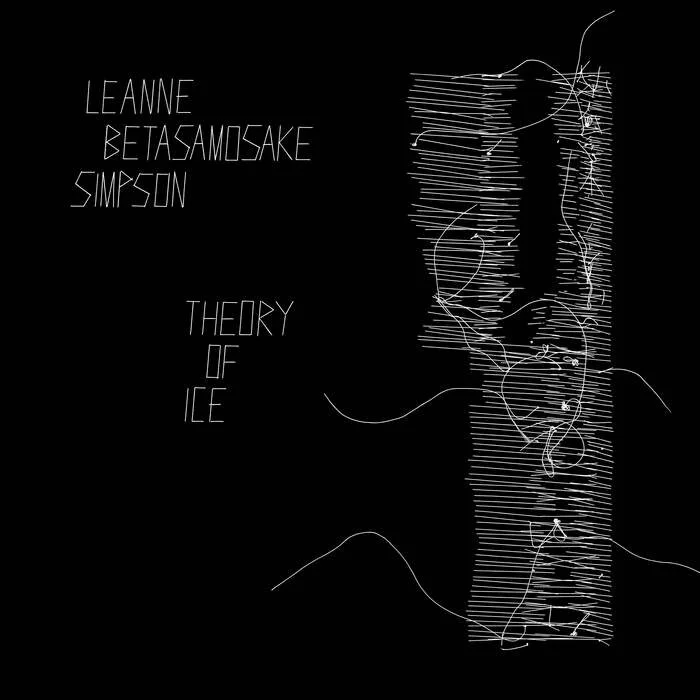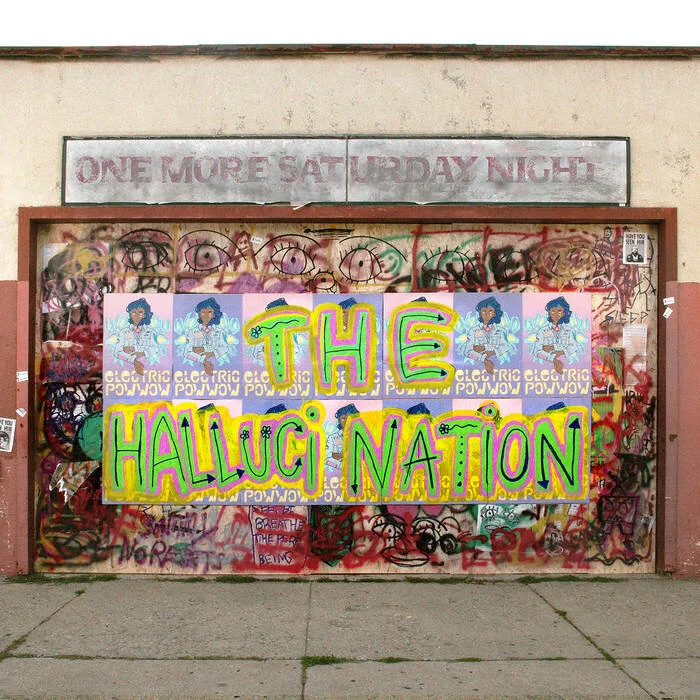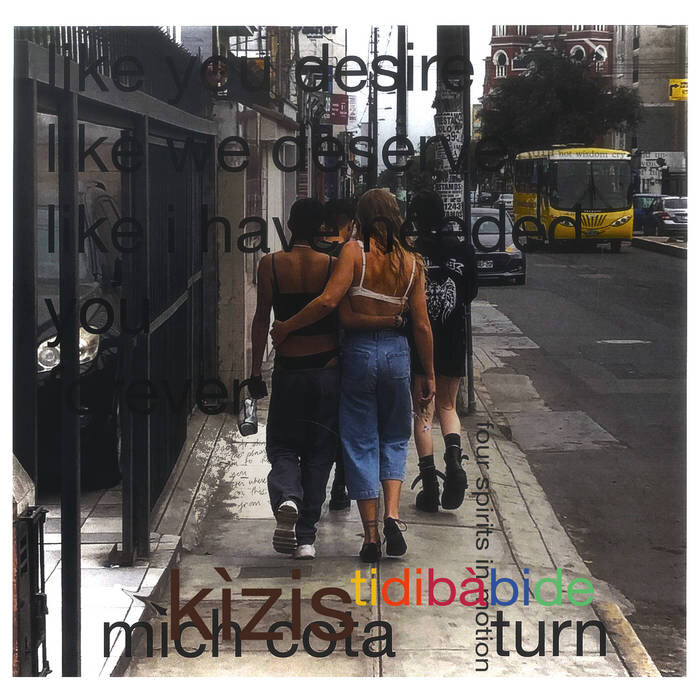Highlighting Indigenous Albums
To help Canadian music fans reflect on the first official year for The National Day for Truth and Reconciliation, Cups N Cakes decided to republish reviews of our favourite Indigenous albums of 2021… so far!
Willie Dunn
Creation Never Sleeps, Creation Never Dies: The Willie Dunn Anthology // Light in the Attic
Willie Dunn was a Montreal born songwriter, politician, filmmaker and naturalist of mixed Mi’kmaq/Scottish/Irish heritage who passed away in 2013 with his musical legacy and contribution relatively unknown within the larger context of the Canadian folk music scene. Although he received his place on the Aboriginal Walk of Honour, his lack of interest in the commercialization of his music and distaste for music industry exploitation prevented him from reaching the level of media saturation achieved by many of his contemporaries. If, like me, you were born back in the days when Canada had about 4 television stations, you likely encountered the music of Willie Dunn through his award winning 1968 National Film Board short, The Ballad of Crowfoot. An NFB mainstay often shown between programs on the CBC, the ten minute film and accompanying ballad was my first significant exposure to unvarnished imagery of Canada’s ugly history of cultural genocide. That song, written in the 100th year of the colonial confederacy, chronicles the endless struggle and repeated betrayal of Canada’s Indigenous people, and wonders continuously with a world-weary sigh whether there will come a “better tomorrow.” One can’t help but stand aghast that over fifty years later the song is precisely as relevant as the day it was released.
Recent listeners may have first encountered Willie via the absolutely essential-listening box set Native North America Vol. 1, also released by Light in the Attic. That particular collection also contained “I Pity the Country,” the absolutely searing indictment of the Canadian state that proved undeniably the massive force of Willie’s political conviction and keen insight.
Perhaps sensing how very crucial the words and music of Willie Dunn are amidst the current generation-defining struggle against environmental destruction and Indigenous exploitation, Light in the Attic have released a long-overdue comprehensive collection of Willie’s music that truly displays what a mammoth musical talent we lost when he passed in 2013. A cursory listen to this extensive two LP collection will quickly convince the neophyte listener that Willie deserves no less a place in the Canadian artistic pantheon than other folk icons like Leonard Cohen, Gordon Lightfoot or Buffy Sainte-Marie.
There were many times over the course of my listening to this set that I was brought to tears by the simple, poignant and beautiful expressions of Willie’s struggle for justice and dignity. Some songs, such as the heart-wrenching “Charlie,” the tragic true story of an Anishinabe boy who perished of hunger and exposure after escaping from a residential school, are almost too emotionally heavy for casual listening; I was particularly struck to wracking sobs by the serene dignity of the Cree lamentation song that serves as the coda for “Crazy Horse.” Even at his most playful, as on the buoyant rave-up “School Days,” there’s an emotional weight to Dunn’s work that demands the listeners’ attention. A politically outspoken, staunchly uncommercial and unashamedly left-leaning force for positive change, Willie’s catalog stands as a frankly staggering bulwark against the environmental degradation and human rights abuses perpetrated under the colonial system, and never shies away from plainly addressing the kind of difficult truths that tend to make settlers more than a little uncomfortable. I don’t think it would be unreasonable to suggest that repeated listenings to Willie Dunn would be crucial for any Canadian interested in the process of decolonization.
Beyond his political commentary, one is also stricken by Willie’s depth of love and reverence for the natural world, reflected in a number of gently meditative pieces, such as the sublime “Pontiac” which incorporates field recordings of bird song, or the rambling piece “The Pacific,” which sounds nothing less than a Canadian companion to Van Morrison’s transcendental classic “Astral Weeks.” There’s poetic depth here that approaches the mystical, and reminds me of Walt Whitman in his most pastoral passages from Leaves of Grass.
By dint of the music alone this package would be essential, but in addition the collection also includes an absolutely delightful set of liner notes packed full of eloquent family tributes, stories, articles and photographs. It’s a massive info dump that gives essential context to the collection, and really drives home the idea that Willie was a truly unique and massive talent who deserves his rightful place among his peers in the Canadian music industry. I can’t give a higher possible recommendation for any reissue collection this year; Creation Never Sleeps, Creation Never Dies is an absolute grail for both fans and casual listeners, and a crucial entry into the under-represented canon of music from Indigenous artists getting renewed exposure thanks to the efforts of the good folks at Light in the Attic. You will absolutely not regret getting your hands on a copy.
- Shaun Lee
Wolf Castle
Da Vinci’s Inquest // Forward Music Group
Full disclosure: I’m a Wolf Castle fan. So much so that in applying to write for this network, I mentioned him as one of my favourite artists. His fourth EP, Da Vinci’s Inquest has only proven that support to be correctly placed.
This record is about shedding selves to find others within. It’s about befores and afters in the way many things are when you’re stuck in the liminal space between adolescence and adulthood, with your mind in one and/or the other.
BEFORE
Da Vinci: multidisciplinary polymath and posterboy of the Italian Renaissance. Brilliant. Martyr of reinvention. Work full of religious references with no definitive affiliation.
Roman Catholicism*: the World’s 2nd largest religious denomination. “Largest non-government provider of education and health care” (Wikipedia), perpetrator of endless historic and contemporary horrors.
Colonialism*: One of them ^. A system that pioneered before and after by weighing calculable gain against immeasurable loss.
The connections between the 3.
*ongoing.
AFTER
Dismissal of fame: a new perspective on prior releases.
Setting: Pabineau First Nation, Mi’kma’ki, and the internet.
Brotherhood: featuring Shift from tha 902, Raphael de la Rez, Flacko Finesse, and Talon the Rez Kid Wonder.
The connections between the 3.
That’s why this record excels.
It doesn’t gloss, or shuffle, or overindulge. Every track carries the tension of deciphering what “then” means: when then was, and whether then is now in the name of self-discovery. This trajectory is perfectly exemplified by both the tracks -- “Get Lit”, whose opening score shifts from cinematic strings to 90s video game beats in the last few moments -- and lyrics: “my medicine pouch got sweet grass and my tax card.”
The music has a glorious sense of time that acknowledges its complexity in a way that’s wholly unique. Even the genres of the individual songs are considered in a way that reflects it; “Summertime Crush” was born in the wrong decade in a way that’s just so right.
When is growing outgrowing? When is re-evaluation a revolution?
Da Vinci’s Inquest is the quintessential 21st century coming of age story. No one could ask for a better capstone to the artist’s three previous EPs. Written, recorded and produced primarily by himself, they earned two ECMA nominations for Indigenous Artist of the Year and one for Prix NB Recording of the Year, as well as a recent gig in my hometown at Sappyfest.
Not to mention that it’s catchy as hell in it’s own right. “Top Dog” plays out: “That’s what we’re talking about 2021 we’re gonna change the world 2022, on and on we go…”, and this record makes me believe it.
In the meantime, though, let Wolf Castle change yours.
- Chloe Lundrigan
P.S. Da Vinci’s Inquest was a CBC show about a “Vancouver cop turned coroner [who] searches for truth and justice with the help of his friends”? It just keeps going.
Leanne Betasamosake Simpson
Theory Of Ice // You’ve Changed
In 2018 Canadian audiences watched as Jeremy Dutcher, the classically-trained opera singer/composer and member of the Tobique First Nation in New Brunswick, accepted the Polaris Prize for his momentous album Wolastoqiyik Lintuwakonawa. Following his historic performance, Dutcher took the stage to accept his prize and challenge the audience with these words: "You are in the midst of an Indigenous renaissance. Are you ready to hear the truth that needs to be told? Are you ready to see the things that need to be seen?"
These words rang loud and crystal clear across the Canadian landscape, further igniting the passions of Canadian- Indigenous artists and piercing the hearts of the settlers who seek to understand the reconciliation needed in this country; open your ears, settlers. The Truth is coming. Indeed, the Truth has already arrived.
We hear these truths--painful, longing, hopeful, jubilant, and never easy to swallow--spoken softly yet confidently by the unparalleled Leanne Betasamosake Simpson, a Michi SaagiigNishnaabeg scholar, writer and artist. Theory Of Ice (March 2021) has received international praise as a near-perfect tapestryof spoken-word poetry, storytelling, and song. There is so much to be said about this work of art, yet I believe it is first important to acknowledge: this album is an undeserved gift. For years, the Indigenous peoples of this land have had their culture, identity, stories, children, women, men, two-spirited folks, and history destroyed, murdered, and ripped away. Yet in an astounding display of grace and strength, Indigenous artists and historians have allowed us white settlers to be moved and humbled by the creative displays of the very sacred history we sought to destroy. This is a gift we don't deserve, and should therefore not be listened to lightly. This is history, unfolding.
Theory Of Ice brings listeners to a world that ebbs and flows, is filled with loss and new life, interconnectedness and interdependence; a world seeking to be far away from the mechanical exchanges of capital; a world that freezes, thaws, dissipates, evaporates, condensates, and flows. There is a precision and detail to each song that illuminates the structured and ordered science of the natural world, yet, when superimposed with the ethereal and misty accompaniment, shows that structure and order are merely the tangible parts of avast, sacred, ubiquitous whole. We hear this at the top of the album with "Break Up", where Simpson speaks: "There is euphotic rising and falling, orbits of dispossession and reattachment achieving maximum density: 39 degrees Fahrenheit. You relax at the surface, spread apart, cooler holding warmer. Regular, repeated, ordered, locked. Lake as one mind" (punctuation mine, as lyrics are written out in a poetic structure on Bandcamp). We hear Simpson mapping out how changes, growth, and evolution are actually full of structure and repetition; what a beautiful reminder that science is never just unimportant numbers and facts, but a breakdown of the magical, supernatural experience of a cyclical life. As an aside, Simpson's ability to poetically discuss the scientific process of ice melting and freezing is a feat in and of itself. I can confidently say I have never heard lyrics like this before.
As much as this album is grounded in nature, it is also a politically-charged resistance to a lying, cheating government and a settler nation with blood on their hands. We arrive to Simpson's rendition of Willie Dunn's "I Pity The Country", unfortunately still as poignant as ever in our current political climate. Overlaid a grungy guitar and slow kick, this song seems to shift in attitude from Dunn's ironic happy-sounding-lament to a now strong, confident war-cry. It has, and will always be, a protest song, yet this instrumentation and final chorus of voices adds a forward momentum that cannot be slowed.
Steven Lambke (Constantines, Baby Eagle) recounted that Simpson had no intention for the album to be organized in alinear or chronological fashion, yet the final song of the album, "Head of the Lake" seems to act rather fittingly as a "period" for the album, or at least an "ellipses". Simpson speaks over a sung chorus: "We made a circle and it helped. The smoke did the things we couldn’t. Singing broke open hearts. I hold your hand without touching it… In realization we don’t exist without each other, she says: there’s nothing about you I’m not willing to know". The story has come full-circle, wrapping humanity up in the story of nature and order--order is sacred, sacred is order. This song is so palpable. You can see a group of people, tired eyes and sullen hearts, leaning on one another and the gifts of the earth to get by, finding strength in being completely cracked open and vulnerable with one another.
There is so much to be said about this album and about Leanne Betasamosake Simpsons books, poetry, stories, videos, lectures, workshops, and art. I encourage readers to check out her website and Bandcamp which highlight her other works which, in true Simpson fashion, all weave together in one way or another. To say that the Indigenous Renaissance is just beginning would be an oversight to the revolutionary work that has already been done for decades by Indigenous artists all across Canada--yes, we are in the midst of an Indigenous Renaissance, and again I say a thank-you to all the artists who allow their art to be interpreted and celebrated by the very ears who repeatedly refused to listen.
- Lana Winterhalt
Status/Non-Status
1, 2, 3, 4, 500 Years // You've Changed Records
It's taken me a while to find the words to write this essay/EP review. I took on Status/Non-Status' album 1, 2, 3, 4, 500 Years to review prior to it’s May 28th release. Before the discovery of the Kamloops Residential School mass gravesite. The country is in a state of shock and dealing with an overdue reckoning in regard to the injustices and inhumane treatment of the Indigenous peoples our ancestors perpetrated (and let’s be real here... still to this day). It’s not like we as a country didn’t know there was the potential for this type of horrific discovery. Many have just chosen to put their heads in the sand, trying to pretend that our ancestors (white ancestors) weren’t capable of such inhumanity. But it was there. Underneath. Always. We’ve always known.
As has the band Status/Non-Status. Status/Non-Status is the new name for the ongoing musical work of Anishinaabe community worker Adam Sturgeon (Nme’) and his longtime collaborators, formerly known as Whoop-Szo. The band spent a decade carving a path through Canada’s DIY scene before their 2019’s album Warrior Down in which Sturgeon confronts his complex family history and identity. The album was long listed for the Polaris Music Prize among numerous other accolades (like our “Best Albums Of 2019” list).
What follows is a direct quote from the artist’s write-up for their first album as Status/Non-Status, and he tells his story better than I can. Adam explains that he is considered “‘non-status’ as defined by the Canadian government. Adam’s grandfather Ralph made the difficult decision to enfranchise (give up his Indian Status designation) in order to support himself and his family by joining the Armed Forces. In the name of providing a better life for himself and his family, Ralph was required to forsake his Anishinaabe roots, an all-too-common experience for Indigenous peoples across Turtle Island. Acts of colonial violence such as enfranchisement, the residential school system, and the Indian Act have resulted in disconnection amongst generations of Indigenous people from their communities, languages, land, and identities.” I implore you to check out his full essay on this subject here and the album write-up here via the Killbeat Music website.
The first single I heard from the EP "Find A Home" touches on this concept of identity and belonging. The lyrics to “Find a Home” brings it dead-on home for me. “Cause I find myself, Further from the answers, Closer to the truth, To you, do you help?”
“Find a Home” is an anthemic song with it's addictive harmonies. I've listened to the song at least 100 times. It’s the perfect intro song that pulls you in with it’s drum heartbeat and carries us into the rest of the EP, which slaps you in the face with a heavier sound, full of anger and mistrust. “Genocidio” and “Chronic Traumatic Encephalopathy” are powerful, harder songs speaking to some hard realities. Rage. Betrayal. Confusion. "Genocide is alive here. Right in your back door." Yeah. It is. And it's time for us ALL to open our eyes to it.
The injustices inflicted on Indigenous peoples are in no way exclusive to Canada and the United States. The band spent two weeks recording the EP in Guachimontones, a small town outside of Guadalajara, Mexico. There they found that the same oppression and discrimination has been felt by Indigenous peoples the world over. The monologue at the end of the EP, “500 Years” is an interview with their Mexican guide Alvaro, speaking about how the “rich, “nice”, white people” took over the nicest areas of the city, and pushed the “people who are rejected by the people that run the city” into the less desirable areas. Nothing has changed in the last 500 years, but their stories, families and spirits live on.
The EP is a short powderkeg of emotion with a social message and viewpoint of gut wrenching truth and reckoning. As Adam says “When we tell stories, we have a responsibility to tell the truth. Do the necessary work to earn trust. Share your experience as one voice within a greater circle … and find a home.”
Man, I sure hope we can.
- Mo Lawrance
The Halluci Nation
One More Saturday Night // Radicalized Records
Despite being with Cups N Cakes for over half a year now, I still find myself much in the dark with the Canadian music scene. I’m not too familiar with national artists, and although I try to expand my knowledge - most of the time the albums I cover are my first time listening to the artist. However, this is a group, I’ve most certainly heard of before, and I’m sure you have too.
The Halluci Nation, formerly known as A Tribe Called Red, is an EDM group which blends elements of electronic dance with First Nations music in a sound the group describes as “powwow-step”, designed to appeal to urban First Nations in the club scene. Their former name was homage to A Tribe Called Quest, an American hip hop group that specialized in songs that addressed the oppression of African Americans. Likewise, A Tribe Called Red takes a similar approach, albeit moving focus to the struggles of First Nations.
Their newest release, One More Saturday Night, is a full length album that perfectly encapsulates their previously mentioned sound, a modern take on the powwow by a mix of drum beats and vocal chants. The album contains excellent performances from many featured artists, such as Antoine, Chippewa Travellers, and Lillian Allen, amongst others. Each song in the album uses its catchy delivery to help expand the ears of its listeners, such as the eighth track “Takarita”, which features the Maori rapping of Rob Ruha, or their bass filled remix of Keith Secola’s “NDN Kars”.
Created as a love letter to the Electric Pow Wows in Ottawa’s Babylon nightclub in 2007, paying homage to the parties that aided The Halluci Nation is discovering and mastering their signature style, the album’s title deriving from the Babylon nightclub scenes abrupt disbandment, with The Halluci Nation recapturing those magical memories in One More Saturday Night. I’ve been listening to these guys since I was a teenager and it was quite the experience to cover their work. If you like hip-hop, badass EDM, and social commentary, you’ll appreciate this album for everything it offers and you’ll find yourself spending a day shuffling through The Halluci Nations discography.
- Brandon Kruze
Kìzis
Tidibábide / Turn // Tin Angel Records
As a music reviewer, it is quite the unique occasion to get to engage with a 4-hour record. I want to start with this disclaimer right out of the gate, because the record I am getting to write about this time is prolific in this respect but also prolific in the quality of its creative output. On February 12, 2021, Kìzis released her sophomore record Tidibábide / Turn through Tin Angel Records. Prior to this release, Kìzis released Kijà / Care (2018) under the name Mich Cota which sought to reflect on recovery from trauma and oppression through love and action. As opposed to the 11 tracks in the prior record, Kìzis delivers 36 tracks of techno, poetry, pop and Algonquin dance reflecting on what it is to live as a trans and Indigenous person in a world which she understands has the capacity to experience great changes still approaching.
Now, this is 36 tracks and I am restricting myself to some specific highlights in the record that particularly stuck with me. Nevertheless, it might be best to start with some general remarks. Tidibábide / Turn is a remarkably ambitious record in its scope and dedication, quite openly collaborative in a community-oriented way that brings a wide number features - the one that blew me away was Billy Ray Belcourt, one of my favourite poets; or for instance, PEACHMAN, who Kìzis met as a Toronto taxi driver and included as gospel singer in “Sister Flower 2.” Though the record is prolifically long, this length is its biggest detriment to the listening experience and can render it somewhat inaccessible to back-to-front listening session - this alone made the reviewing experience somewhat daunting. Now, getting that caveat out of the way, I was pleasantly surprised to see a strong consistency in quality in the record beginning to end. And nevertheless, it is important to understand this uncompromising creative exploration is something that Kìzis did for herself - thereby, to respect and honour this record for what it is, it is important to recognize it as a vulnerable invitation to a thoroughly intimate and collaborative process.
As for tracks that stuck out to me through the record, I narrowed it to 12 tracks that I get to glimpse over (an LP by itself!). “Side of the Road” is one of the catchiest and prettiest tracks in the record, with the constant refrain “love is what keeps me alive” vibing to a dancy track and then elevated to an emotional core with a stringed instrumentation. “Kiss For The Valley” starts with some real good adlibs leading into hushing celebratory that culminate halfway through with the refrain “I can’t explain what it is has become how we live'' which builds-up such power in the track with all the voices participating in reverberating these words. “Higher Self” is also a gripping track with some excellent vocal production giving a cascading texture to the booming bass beats, this is only accentuated be the incorporation of strings and ultimately all of it comes together in letting the track’s instrumentation breathe out all of its elements. By themselves, “Sister Flower (One Comes to Us)” and its sister tracks cover an hour of music in this record - each version of this track is unique and has its very own musical moments that are thoroughly genre-bending and experimental, but they never stop bopping hard. “The Exquisite Party Girl Anthem” is one of my favorite tracks in the record, as the vocals and strings converge quite well with the beat, which for sometimes keeps the track together - but as the track moves on, you can slowly see this song deconstruct all these elements. “Amanda” was featured as a music video for the record, and it is certainly a notable track that embarrassed the strong techno aspects of the artist’s work, where all the different loops interslice the song into oscillations of sounds, always coming back to voice and beat. “Turn” is the titular song to the record, and it is one of the most deconstructed tracks which starts with simple choral vocals over which many instrumental freeplay and vocal ad libs take it to a few different directions: from an arpeggiated cave rave section to a catchy pop hook with the line “So the sun doesn’t make you lose control.” “PERSONALITY!” is an unique track that incorporates the sounds of disco with poetic readings, while the readings by Billy Ray Belcourt and Tenille Campbell are quite delightful, the instrumental portion of the track goes astonishingly hard to achieve a dynamic and on-going groove. Lastly, there is “Nika” which is one of the Algonquin dance songs that Kìzis includes in the record - and I want to give a quick honorable to “Dawemà” at the beginning of the record - but I particularly want to mention “Nika” for the degree of bassiness given to the drum’s rumbling as it makes the song be embodied in an unique way.
So, there it is, some comments and thoughts on probably one of the most ambitious records I’ve had the opportunity to review. While challenging as front-to-back listening experience, Kìzis does offer something unique, vulnerable, personal, and collective in this record - it would be hard to say that there is anything like it, because there simply is not. Kìzis is an uncompromising artist in claiming her own work for herself and her community, as the music is the embodiment of that togetherness that resonates through the record’s lyricism and enveloping sound.
- Simone A. Medina Polo






